The English Language Structure Formal, informal vocabulary; colloquialisms,

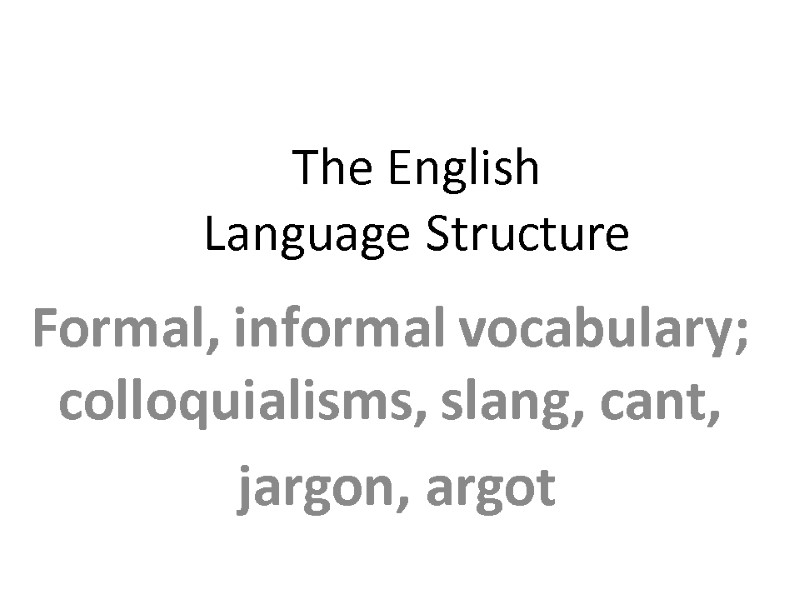
The English Language Structure Formal, informal vocabulary; colloquialisms, slang, cant, jargon, argot
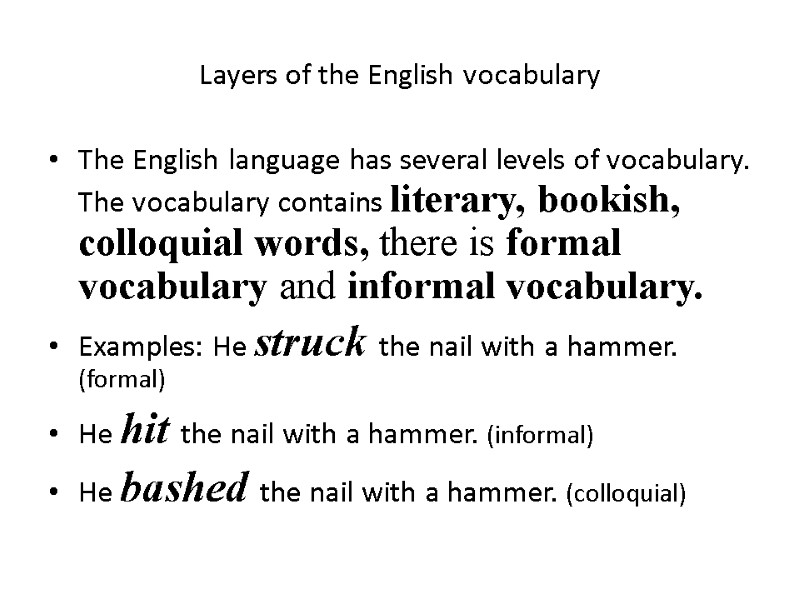
Layers of the English vocabulary The English language has several levels of vocabulary. The vocabulary contains literary, bookish, colloquial words, there is formal vocabulary and informal vocabulary. Examples: He struck the nail with a hammer. (formal) He hit the nail with a hammer. (informal) He bashed the nail with a hammer. (colloquial)
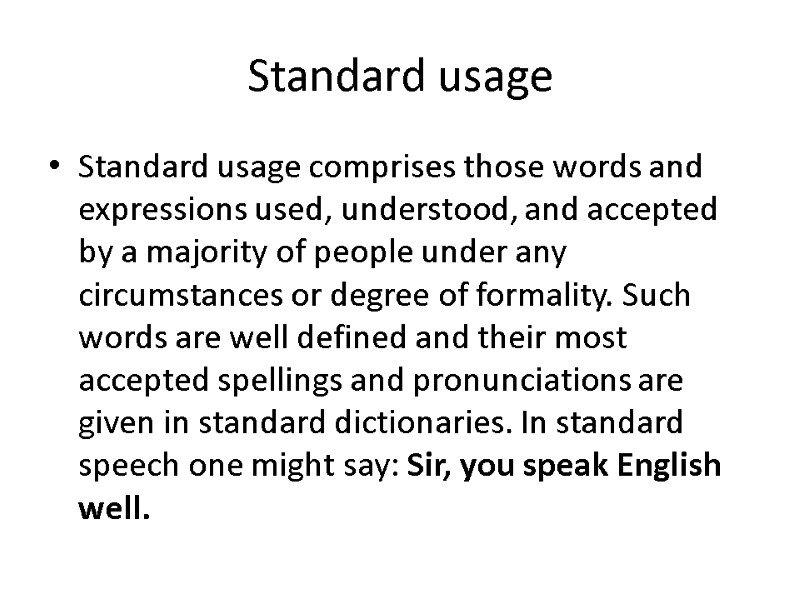
Standard usage Standard usage comprises those words and expressions used, understood, and accepted by a majority of people under any circumstances or degree of formality. Such words are well defined and their most accepted spellings and pronunciations are given in standard dictionaries. In standard speech one might say: Sir, you speak English well.
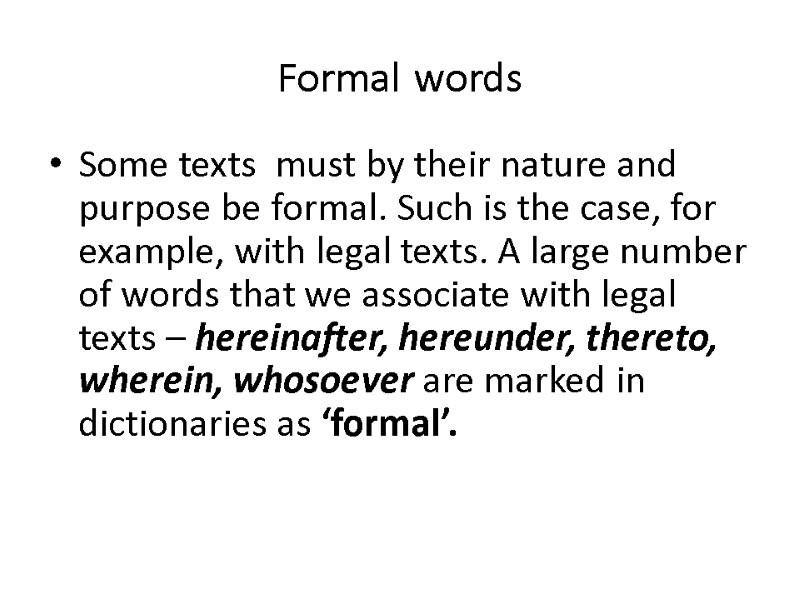
Formal words Some texts must by their nature and purpose be formal. Such is the case, for example, with legal texts. A large number of words that we associate with legal texts – hereinafter, hereunder, thereto, wherein, whosoever are marked in dictionaries as ‘formal’.
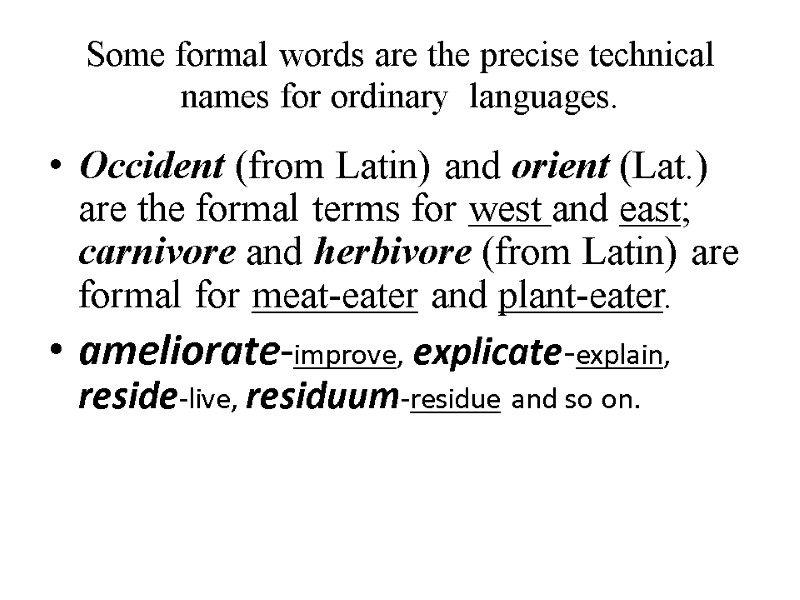
Some formal words are the precise technical names for ordinary languages. Occident (from Latin) and orient (Lat.) are the formal terms for west and east; carnivore and herbivore (from Latin) are formal for meat-eater and plant-eater. ameliorate-improve, explicate-explain, reside-live, residuum-residue and so on.
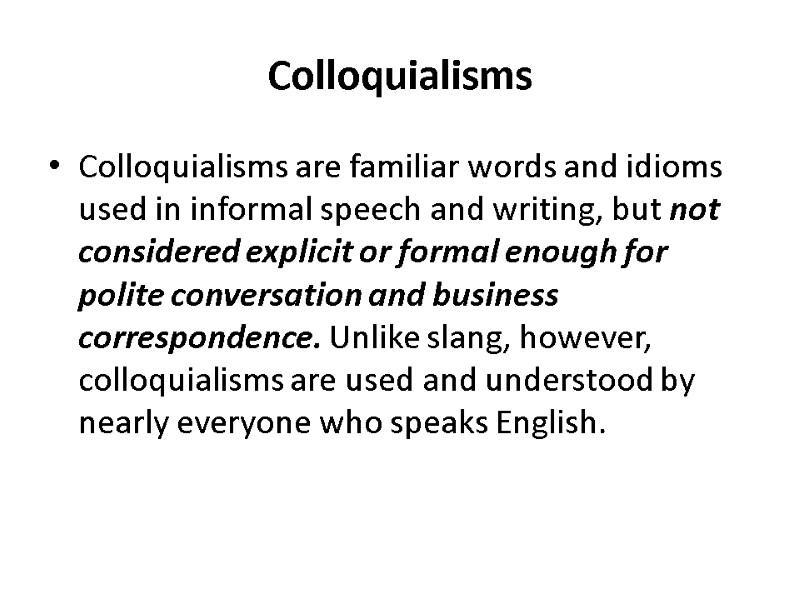
Colloquialisms Colloquialisms are familiar words and idioms used in informal speech and writing, but not considered explicit or formal enough for polite conversation and business correspondence. Unlike slang, however, colloquialisms are used and understood by nearly everyone who speaks English.
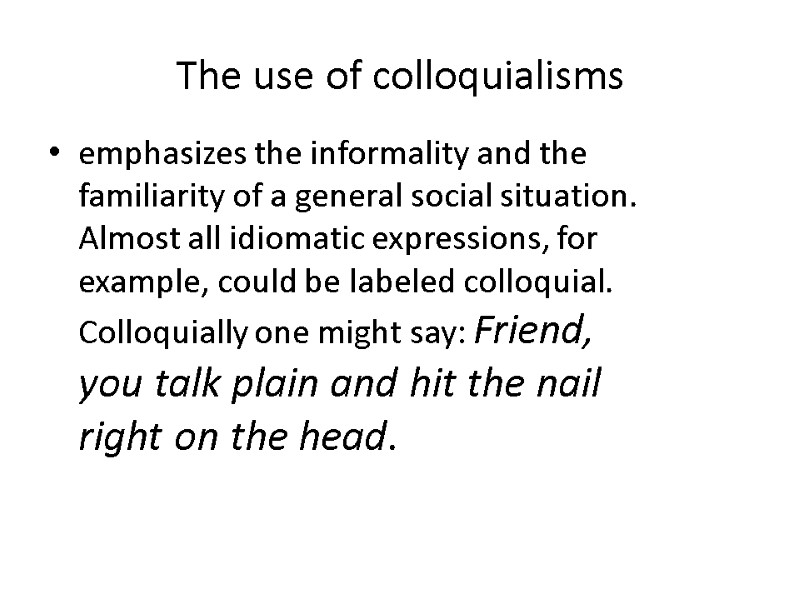
The use of colloquialisms emphasizes the informality and the familiarity of a general social situation. Almost all idiomatic expressions, for example, could be labeled colloquial. Colloquially one might say: Friend, you talk plain and hit the nail right on the head.
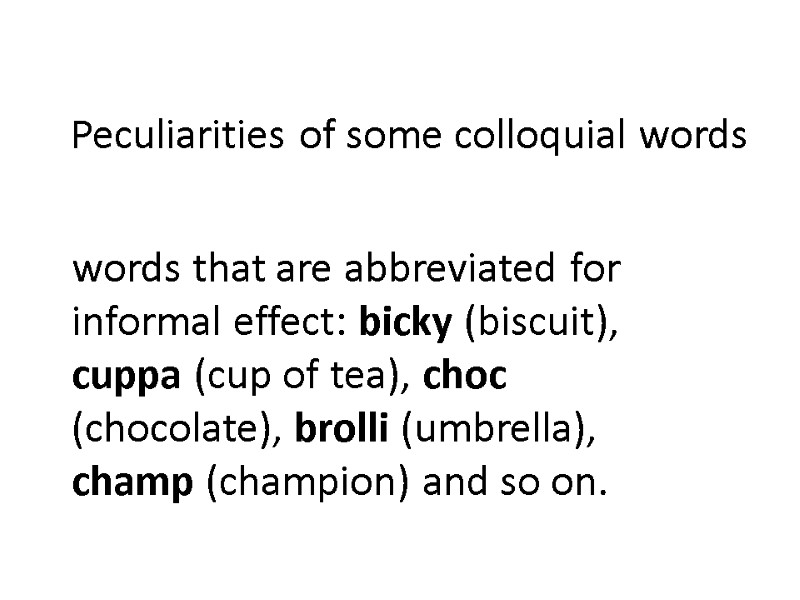
Peculiarities of some colloquial words words that are abbreviated for informal effect: bicky (biscuit), cuppa (cup of tea), choc (chocolate), brolli (umbrella), champ (champion) and so on.
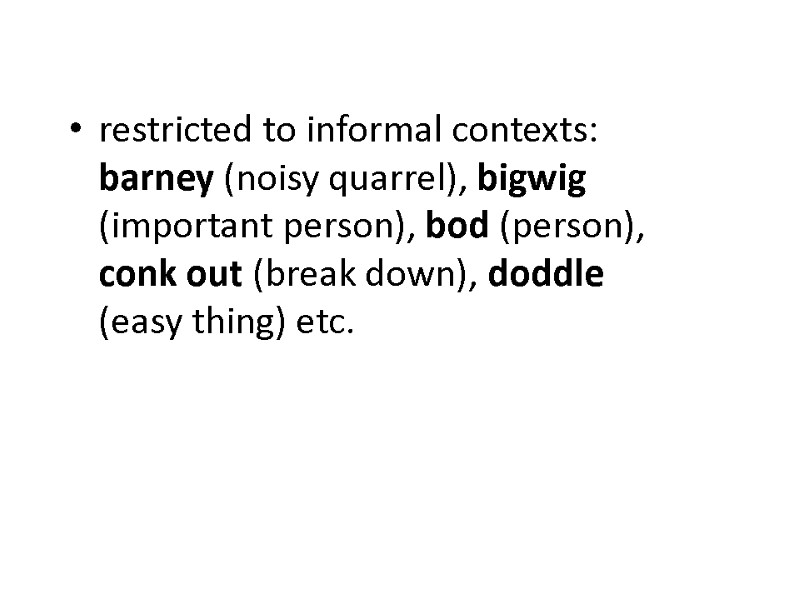
restricted to informal contexts: barney (noisy quarrel), bigwig (important person), bod (person), conk out (break down), doddle (easy thing) etc.
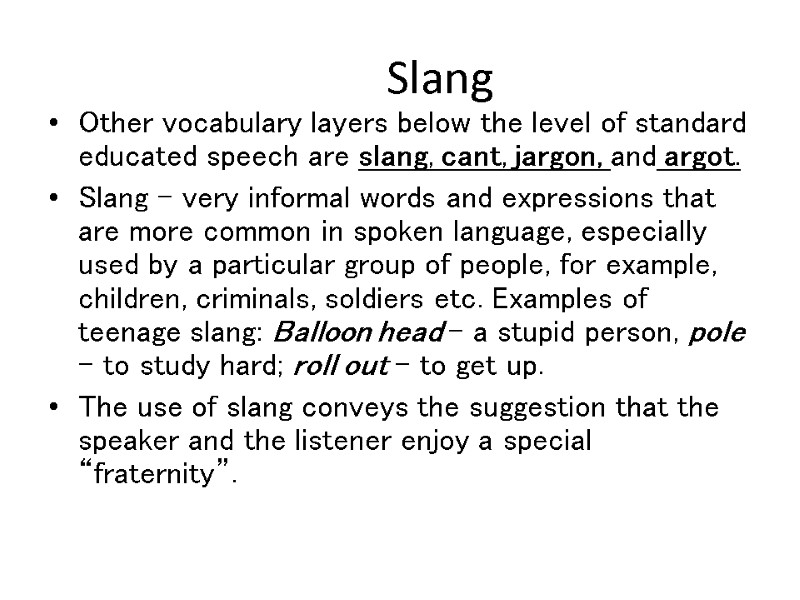
Slang Other vocabulary layers below the level of standard educated speech are slang, cant, jargon, and argot. Slang – very informal words and expressions that are more common in spoken language, especially used by a particular group of people, for example, children, criminals, soldiers etc. Examples of teenage slang: Balloon head - a stupid person, pole – to study hard; roll out – to get up. The use of slang conveys the suggestion that the speaker and the listener enjoy a special “fraternity”.
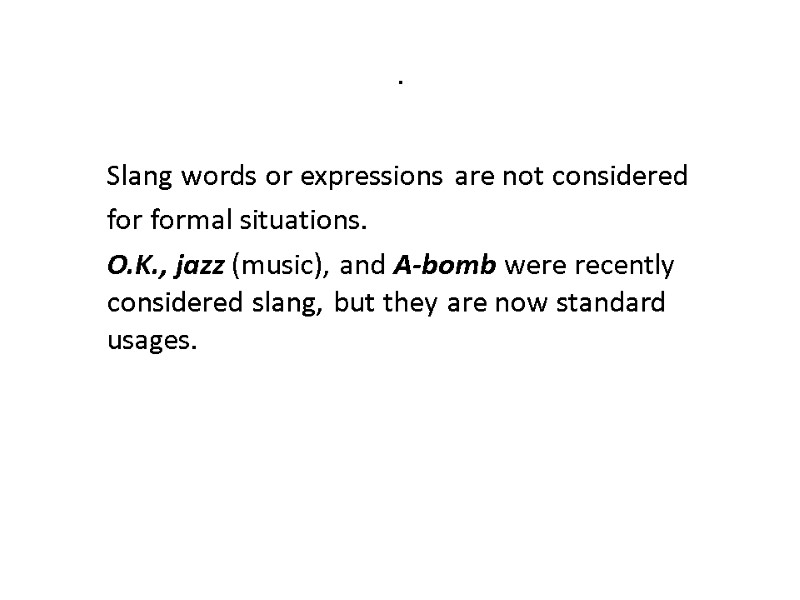
. Slang words or expressions are not considered for formal situations. O.K., jazz (music), and A-bomb were recently considered slang, but they are now standard usages.
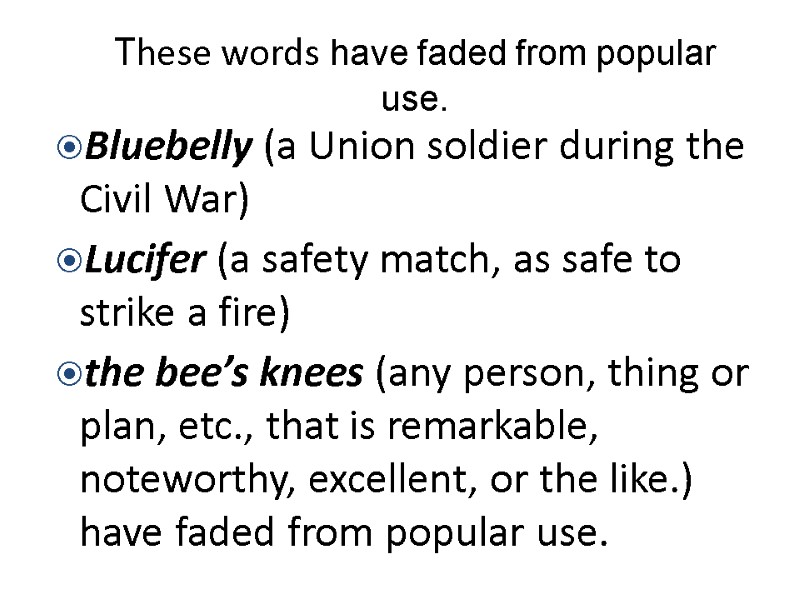
These words have faded from popular use. Bluebelly (a Union soldier during the Civil War) Lucifer (a safety match, as safe to strike a fire) the bee’s knees (any person, thing or plan, etc., that is remarkable, noteworthy, excellent, or the like.) have faded from popular use.
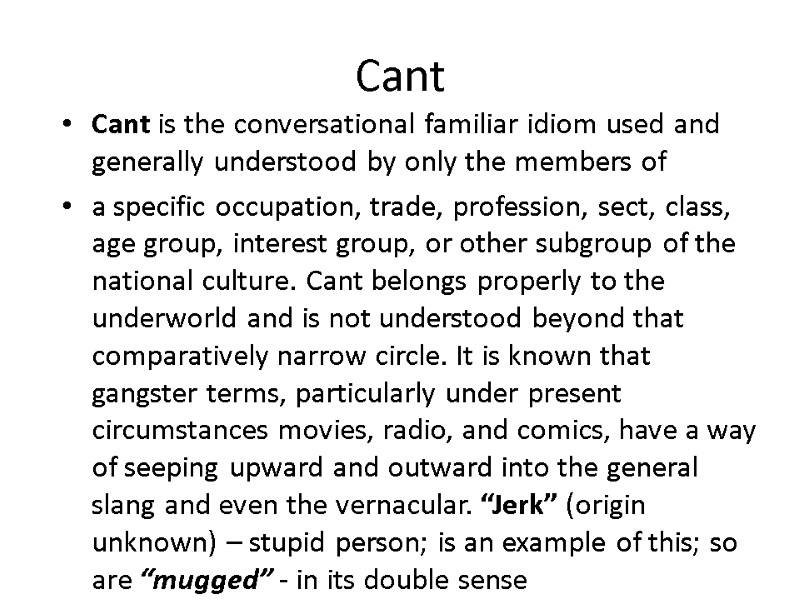
Cant Cant is the conversational familiar idiom used and generally understood by only the members of a specific occupation, trade, profession, sect, class, age group, interest group, or other subgroup of the national culture. Cant belongs properly to the underworld and is not understood beyond that comparatively narrow circle. It is known that gangster terms, particularly under present circumstances movies, radio, and comics, have a way of seeping upward and outward into the general slang and even the vernacular. “Jerk” (origin unknown) – stupid person; is an example of this; so are “mugged” - in its double sense
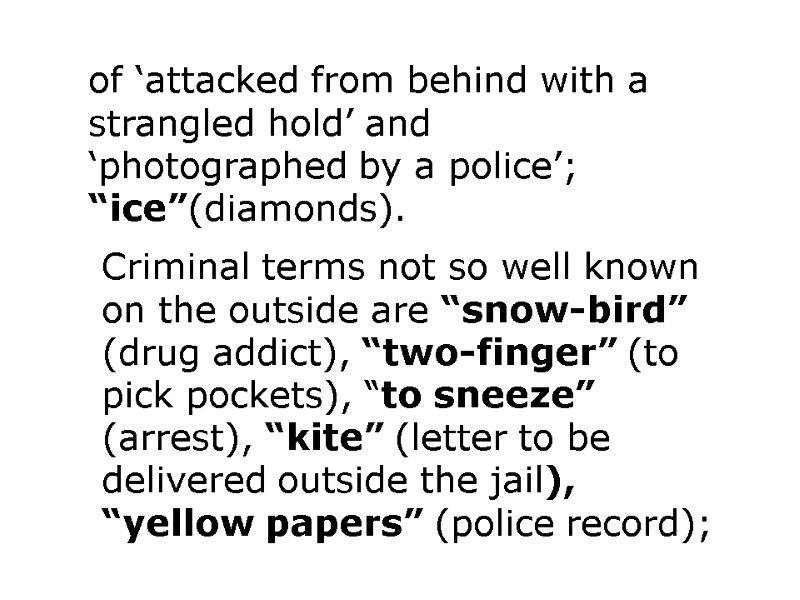
of ‘attacked from behind with a strangled hold’ and ‘photographed by a police’; “ice”(diamonds). Criminal terms not so well known on the outside are “snow-bird” (drug addict), “two-finger” (to pick pockets), “to sneeze” (arrest), “kite” (letter to be delivered outside the jail), “yellow papers” (police record);
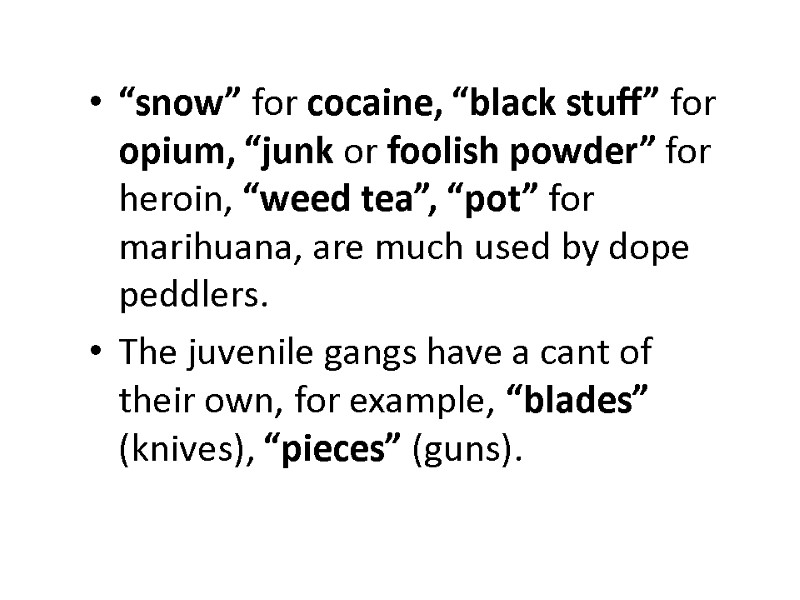
“snow” for cocaine, “black stuff” for opium, “junk or foolish powder” for heroin, “weed tea”, “pot” for marihuana, are much used by dope peddlers. The juvenile gangs have a cant of their own, for example, “blades” (knives), “pieces” (guns).
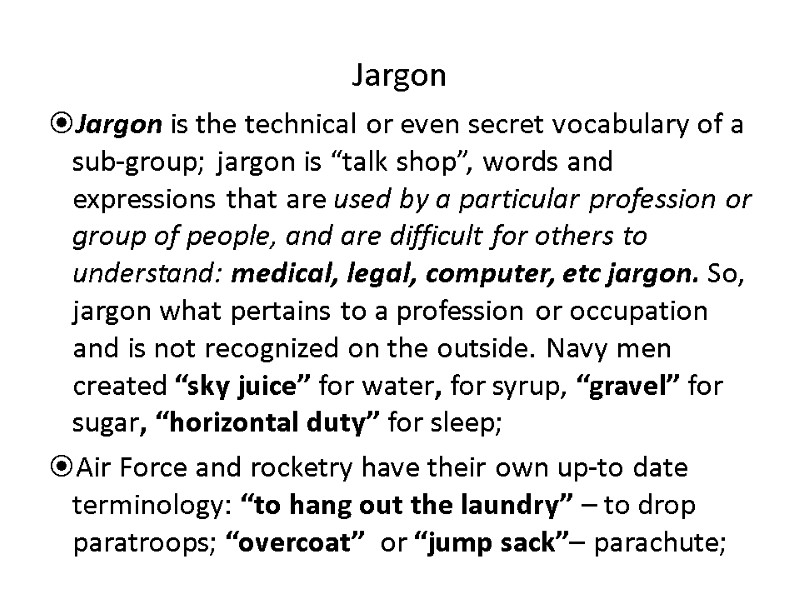
Jargon Jargon is the technical or even secret vocabulary of a sub-group; jargon is “talk shop”, words and expressions that are used by a particular profession or group of people, and are difficult for others to understand: medical, legal, computer, etc jargon. So, jargon what pertains to a profession or occupation and is not recognized on the outside. Navy men created “sky juice” for water, for syrup, “gravel” for sugar, “horizontal duty” for sleep; Air Force and rocketry have their own up-to date terminology: “to hang out the laundry” – to drop paratroops; “overcoat” or “jump sack”– parachute;
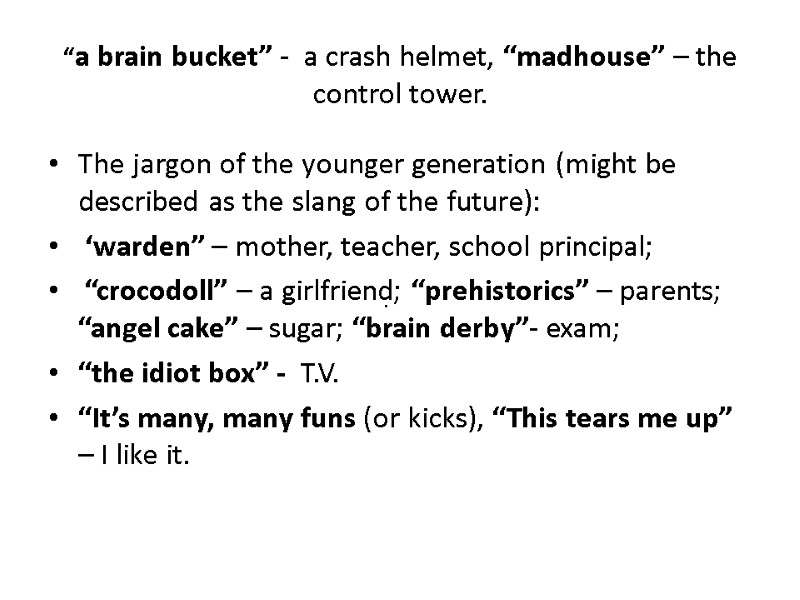
“a brain bucket” - a crash helmet, “madhouse” – the control tower. The jargon of the younger generation (might be described as the slang of the future): ‘warden” – mother, teacher, school principal; “crocodoll” – a girlfriend; “prehistorics” – parents; “angel cake” – sugar; “brain derby”- exam; “the idiot box” - T.V. “It’s many, many funs (or kicks), “This tears me up” – I like it. .
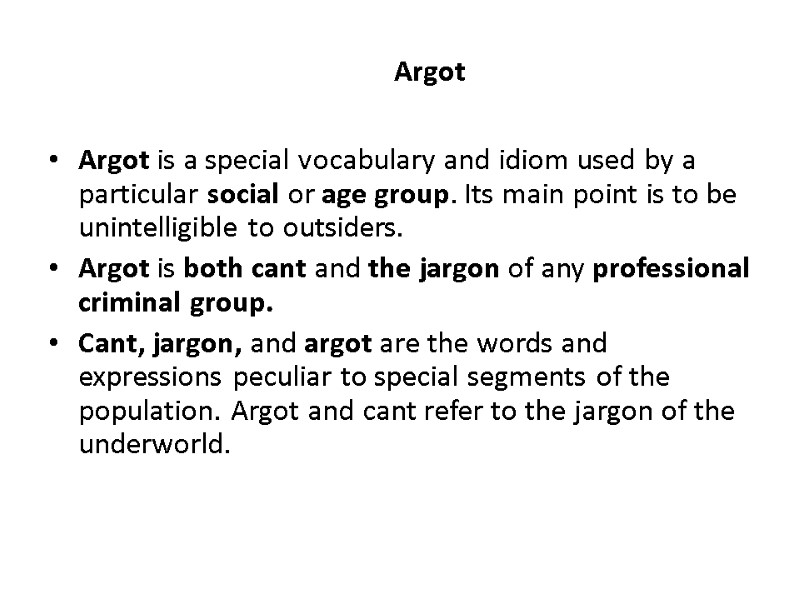
Argot Argot is a special vocabulary and idiom used by a particular social or age group. Its main point is to be unintelligible to outsiders. Argot is both cant and the jargon of any professional criminal group. Cant, jargon, and argot are the words and expressions peculiar to special segments of the population. Argot and cant refer to the jargon of the underworld.
7790-engl._lang._str.10.ppt
- Количество слайдов: 18

